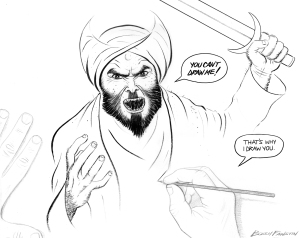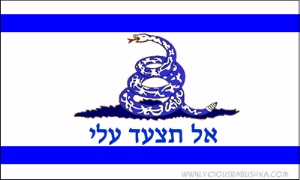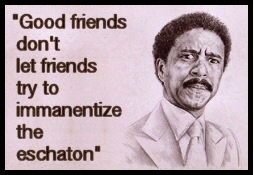The House Of Special Purpose
[NOTE: This is a republishing of a post I originally ran a four years ago]
This is the Ipatiev House in Ekaterinburg, Russia…
It was code-named The House Of Special Purpose by the Bolsheviks. Lenin ordered that Nicholas II, ex-Tsar of all the Russias, and his family be imprisoned there, but that was not the ‘special’ purpose. This is the Tsar and his family:
Parents: Nicholas, Alexandra
Children [in birth order]: Olga, Maria, Tatiana, Anastasia, Alexis
On the night/morning of 16/17 July 1918, the family was awakened, told to dress quickly as they would have to leave in a hurry, ushered into a basement room, and were murdered by a bunch of local Bolsheviks. From Wikipedia:
Around midnight Yakov Yurovsky, the superintendent of The House of Special Purpose, ordered the Romanovs’ physician, Dr. Eugene Botkin, to awaken the sleeping family and ask them to put on their clothes. The Romanovs were then ordered into a 6×5 meter semi-basement room. Nicholas asked if he could bring two chairs for himself and his wife. A firing squad appeared next and Yurovsky announced:
“ Nikolai Aleksandrovich, your relatives have tried to save you, but they had not to. And we are forced to shoot you by ourselves… ”
Yurovsky then began to read the decision of the Ural Executive Committee (Uralispolkom), and Nicholas said “What?” As the weapons were raised, the Empress and the Grand Duchess Olga, according to a guard’s reminiscence, had tried to cross themselves, but failed amid the shooting. Yurovsky reportedly raised his gun at Nicholas and fired; Nicholas fell dead instantly. The other executioners then began shooting until all the intended victims had fallen. Several more shots were fired at the victims and the doors opened to scatter the smoke. Some survived the gunshots, so executioner P.Z. Yermakov stabbed them with bayonets because the shouts could be heard outside. The last ones to die were Anastasia, Tatiana, Olga, and Maria, who were wearing several pounds (over 1.3 kilograms) of diamonds within their clothing, thus rendering them bullet-proof to an extent. However they were speared with bayonets as well. Olga sustained a gun shot wound to the head while Anastasia and Maria were said to have crouched up against a wall covering their heads in terror until Maria was shot down, and Anastasia had been finished off with the bayonets. Yurovsky himself killed Tatiana and Alexei. Tatiana died from a single bullet through the back of her head. Alexei received two bullets to the head, right behind the ear. Anna Demidova, Alexandra’s maid, survived the initial onslaught but was quickly murdered against the back wall of the basement, stabbed to death while trying to defend herself with a small pillow she had carried into the sub-basement that was filled with precious gems and jewels. Military commissar Peter Ermakov, in a drunken haze, stabbed at the dead bodies of the former Czar and Czarina, shattering both their rib cages in a pool of blood.
The bodies were then loaded into trucks, taken into the woods, desecrated, and buried.
This is the room where they were slaughtered in the name of Leftism:
This brutal murder of a whole family was certainly not the first, nor would it be the last, such action perpetrated by Leftists in their various ‘glorious’ marches to bring about Heaven on Earth [hundreds of millions of souls cry-out to us], but in it, in this one action, is to be found the ultimate representation of where Leftism will always lead: to the slaughter of innocent human beings in the name of ideas — ideology. Logic dictates that there can be no other end.
As long as Leftism is allowed to thrive, to just exist, then the Olga’s, Maria’s, Tatiana’s, Anastasia’s, and Alexis’s of this world are not safe from the barrels of Bolshevik guns. If the Leftists were to control the world, they would turn the whole of it into a House Of Special Purpose.
SIDENOTE: The whole family have been declared Saints by the Russian Orthodox Church…they are certainly Martyrs of Freedom…
Requiescat in pace
NEW ADDITION for the 2013 POSTING…
In view of the tens of thousands of lives which the Cheka would claim in the years that followed the Ekaterinburg tragedy, and the millions killed by its successors, the death at its hands of eleven prisoners hardly qualifies as an event of extraordinary magnitude. And yet, there is a deep symbolic meaning to the massacre of the ex-Tsar, his family, and staff. Just as liberty has its great historic days —the battles of Lexington and Concord, the storming of the Bastille—so does totalitarianism. The manner in which the massacre was prepared and carried out, at first denied and then justified, has something uniquely odious about it, something that radically distinguishes it from previous acts of regicide and brands it as a prelude to twentieth-century mass murder.
…
When a government arrogates to itself the power to kill people, not because of what they had done or even might do, but because their death is “needed,” we are entering an entirely new moral realm. Here lies the symbolic significance of the events that occurred in Ekaterinburg in the night of July 16–17. The massacre, by secret order of the government, of a family that for all its Imperial background was remarkably commonplace, guilty of nothing, desiring only to be allowed to live in peace, carried mankind for the first time across the threshold of deliberate genocide. The same reasoning that had led the Bolsheviks to condemn them to death would later be applied in Russia and elsewhere to millions of nameless beings who happened to stand in the way of one or another design for a new world order.
—Richard Pipes, The Russian Revolution, Chapter 17.
–
Comments are closed.

















This raises a matter of moment: “Christianity has always claimed that neither the death of the Christ nor the suffering of Christians is tragic, because neither is rooted in the affirmation of its greatness but in the participation in the predicament of estranged man to which each belongs and does not belong.” Paul Tillich (http://theological-geography.net/?p=5372).
In my mind, this recalls Patton’s statements about the heroism of soldering and the grandeur of a soldier’s giving their life for their country. A fallen soldier should be celebrated for the nobility of their life and its end, that they served their mother country. No tragedy there. Only joy and commendation.